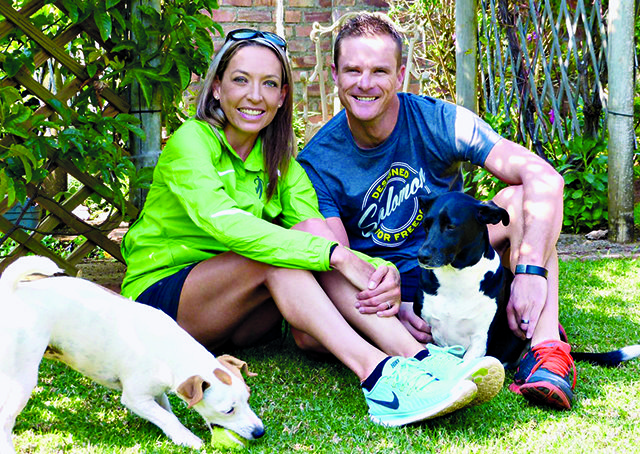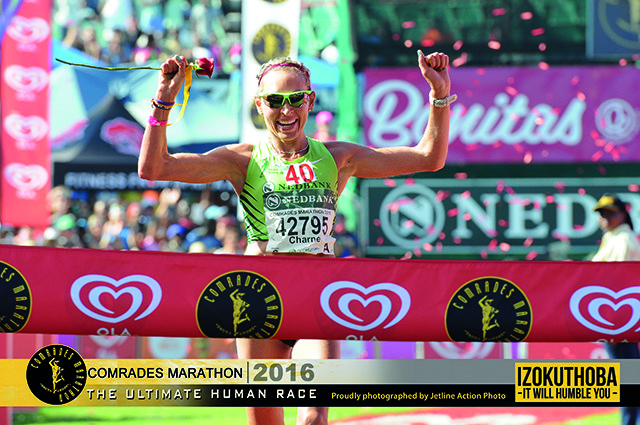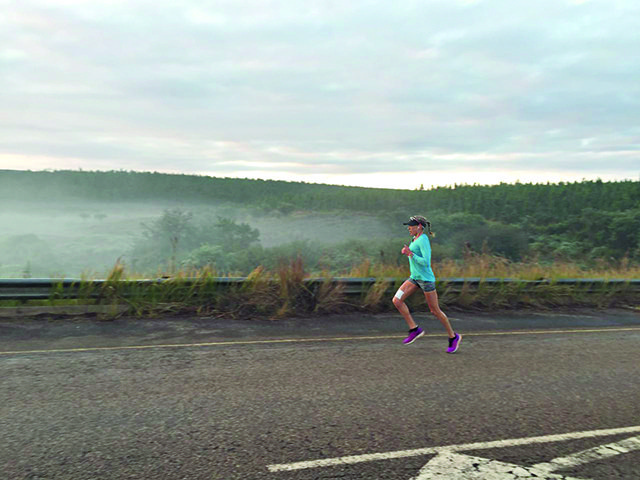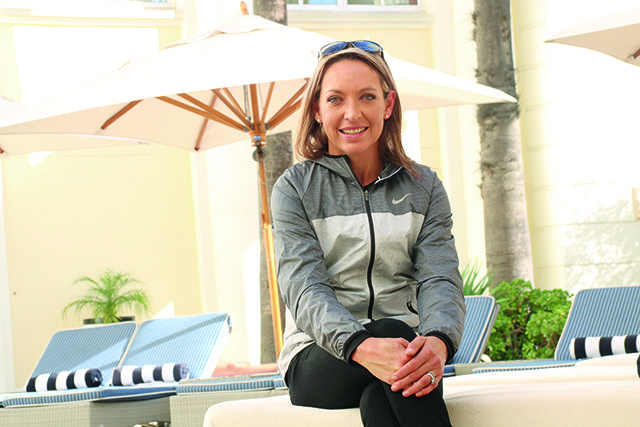My Running Life: Charné Bosman
We sat down with the 2016 Comrades Marathon winner, three-time SA Marathon champion, 2013 Two Oceans runner-up, multiple South African champion to find out her secrets to success.
We sat down with the 2016 Comrades Marathon winner, three-time SA Marathon champion, 2013 Two Oceans runner-up, multiple South African champion to find out her secrets to success.

Adversity
Seven weeks before this year’s Comrades Marathon I broke my pinkie toe, when I slipped in the bathroom. When I found out that rugby players often play with broken toes, I knew I couldn’t do more damage. So I took two weeks off and then carried on training.
To speed up the healing process I did a series of hyperbaric oxygen therapy sessions, where they pump pure oxygen into a tank you’re in. It reduced my recovery time by half.
At the Two Oceans this year I only found out after the race that I was suffering from a bladder infection. When I crossed the line, I just passed out. It was disappointing, because I finished fourth.
Racing
When it comes to running a race like Comrades, you have to have a plan… and you need to stick to it! I break the race up into four sections, and plan my pace for each of those sections.
On the downhills you need to stay in control. On the way down Field’s Hill, guys were flying past me; but when I got to the bottom, I saw them just standing there. Their legs were broken up.
With 13 kilometres to go I could hear people telling me that Caroline (Wöstmann, 2015 Comrades winner) was in trouble. But you can’t think too much about that. I still had to get through the race myself, and I had to keep running at my pace.
I need to see someone in order to chase them. When I could actually see the cars and motorbikes around Caroline, that was the first time I realised that the win was on.
I knew that when I passed her, I’d have to run as hard as possible. For everyone watching, it was clear that she wasn’t able to respond… but I didn’t know that.
Comrades
I don’t think we realise the magnitude of this proudly South African event. When I won this year, people asked me when I’d started running.
I feel for other athletes in other disciplines who don’t get the recognition they deserve. There are a lot of athletes who put in a lot of hard work, and they deserve much more.
Comrades is part of our culture. It’s like South Africa’s Olympics.
Last year, Caroline asked me how we were going to beat the Russians. I said I didn’t care – I was just going to run my own race.
Bruce Fordyce says that winning Comrades is a bit of a recipe. It’s both a science and an art.
You have to plan everything with Comrades: nutrition, training camps, and recovery. You have to puzzle it all together and get it right. We are close to doing that, and taking on anyone in this race.
You have to have respect for Comrades. It’s 89 kilometres. Anything can happen. It only happens once a year, and you put so much in for just one day.
The Athlete
I’m a different kind of athlete to Caroline. More cautious. But maybe I should just take more chances.
In 2012 I was attempting to qualify for the Olympics in Rotterdam, and I was feeling good. My target was 2:36; but I felt great, and thought I could go 2:34… but by 22 kilometres, I’d blown it. There is a correlation with form, and there are rules and scales that dictate what you’re capable of.
Failing to make the Olympics in 2012 almost ended my running career. I was sad for months after that race. It was one of my biggest dreams, and I didn’t achieve it.
Training
For the ‘Down’ run at Comrades I did a lot more strength work than I did for the ‘Up’ run. I worked with a biokineticist three times a week; and sometimes I’d get into the car afterwards and tell Carel (Charné’s husband) that that was the hardest training session I’d ever done.
The day is full when you’re in a training camp. You have to wake up at 5am so that there’s enough time to get your first run in, some strength work, and then a second run later in the day. Plus you need to eat and rest. I’m often in bed by 8pm.
I didn’t drink a single drop of alcohol from November until race day.
Food
During Comrades, I ate real food. I don’t do things like gels. I eat a little bit of potato, and I ate four ButtaNutt sachets along with my energy drink later on in the race. I’ve learned that stable blood sugar is better, and I try and keep things as natural as possible – you don’t want to feel like falling asleep a third of the way into the race.
I try to eat fewer carbs in the week before the race, because I’m not training very hard. Then I just up it a bit in the two or three days before. It’s not really carbo-loading; just a little increase.
After my thyroid problems, I don’t eat any pasta or wheat; and I stay gluten-free. It’s all about good carbs.
The Mind Game
I like to stay positive, and not let negative thoughts into my mind.
When I was 16 years old I did a VO2max test, and they said I had scored 69 and had lots of potential to be a long-distance runner. It gave me lots of encouragement. I’m built like a Kenyan… long legs and a short torso. So that’s a good thing.
When I started running I always looked up to Elana Meyer. She was just the perfect athlete, and I wanted to be like her. It seemed so easy when she was running.
The 2013 Two Oceans was one of the best races I’ve ever had. I was lying ninth at Constantia Nek, and I started chasing and catching everyone. I felt so incredible, and I was hammering it over the last three kilometres.
Perhaps next year I will run more aggressively at Comrades, because I have a first and a second now.
READ MORE ON: charne bosman comrades comrades-marathon inspiring people




